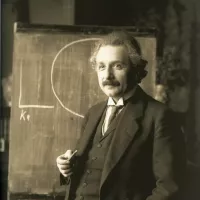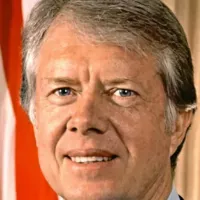Brandeis University, located in Waltham, Massachusetts, is a private, non-sectarian, coeducational research university founded in 1948. It occupies the former site of Middlesex University. Named after Louis Brandeis, a U.S. Supreme Court Justice, the university is situated within the Greater Boston area and is known for its commitment to academic excellence and social justice.
1944: Death of John Hall Smith
In 1944, John Hall Smith, the founder of Middlesex University, died. His will stipulated that the school should be used to establish a non-sectarian university.
February 5, 1946: Einstein Joins Brandeis
On February 5, 1946, Albert Einstein joined the nascent Brandeis University, drawing national attention to the institution. He believed the university would attract talented young people.
March 1946: Foundation Aims to Open School
In March 1946, the foundation announced it had raised $10 million and would open the school by the following year. It also purchased Middlesex University's land and buildings for two million dollars.
July 16, 1946: University Named After Louis Brandeis
On July 16, 1946, the board decided that the university would be named after Louis Brandeis after Albert Einstein declined the offer to have it named after him.
September 2, 1946: Einstein Threatens to Sever Ties
On September 2, 1946, Einstein threatened to sever ties with the foundation, leading to Goldstein's resignation. This was publicly denied.
November 1, 1946: University Named Brandeis University
On November 1, 1946, the foundation announced the new university would be named Brandeis University after Louis D. Brandeis.
June 1947: Einstein Breaks with Foundation
In early June 1947, Einstein made a final break with the foundation. The veterinary school was closed, and disagreements arose over the potential appointment of Harold Laski as president.
1947: Closure of Middlesex University Medical School
In 1947, the Brandeis board closed the Middlesex University medical school due to the investment required for accreditation. There were also disagreements regarding the veterinary school, which Einstein wanted to improve, while others wanted to close it.
April 26, 1948: Abram L. Sachar Chosen as First President
On April 26, 1948, Brandeis University announced that Abram L. Sachar had been chosen as its first president. Sachar emphasized academic integrity, service, and non-discrimination.
October 14, 1948: First Freshman Class Arrives
On October 14, 1948, Brandeis University welcomed its first freshman class of 107 students from 28 states and six foreign countries. They were taught by thirteen instructors in eight buildings on a 100-acre campus.
1948: Brandeis University Founded
In 1948, Brandeis University was founded as a non-sectarian, coeducational university on the site of the former Middlesex University in Waltham, Massachusetts. It was named after Louis Brandeis.
1949: Eleanor Roosevelt Joins Board
In 1949, Eleanor Roosevelt joined the board of trustees at Brandeis University.
March 1950: Construction of Dormitories Begins
In March 1950, construction of on-campus dormitories began at Brandeis University, with the goal of housing ninety percent of students on campus.
May 1950: Construction on Athletic Field Begins
In May 1950, construction on an athletic field began at Brandeis University.
September 30, 1950: Football Team's First Game
On September 30, 1950, Brandeis University's football team played its first game, a road win against Maine Maritime Academy.
September 29, 1951: First Varsity Football Game
On September 29, 1951, Brandeis University played its first varsity football game, a home loss against the University of New Hampshire.
October 6, 1951: First Varsity Football Win
On October 6, 1951, Brandeis University achieved its first varsity football win, with a score of 24–13 in an away game at Hofstra University.
October 13, 1951: Brandeis Stadium Opens
On October 13, 1951, Brandeis Stadium opened in time for a home win against American International College.
1951: Authorization to Award Advanced Degrees
In 1951, the state legislature of Massachusetts authorized Brandeis University to award master's degrees, doctorate degrees, and honorary degrees.
February 1952: Construction of Amphitheater Begins
In February 1952, construction of a 2,000-seat amphitheater began at Brandeis University.
June 16, 1952: First Graduating Class
On June 16, 1952, Brandeis University's first graduating class of 101 students received their degrees. Leonard Bernstein planned a four-day ceremony that included the world premier of his opera Trouble in Tahiti.
1953: Einstein Declines Honorary Degree
In 1953, Albert Einstein declined the offer of an honorary degree from Brandeis University. The university awarded its first honorary degrees to Paul H. Douglas, Louis Ginzberg, and Alpert. The Department of Near Eastern and Judaic Studies was also created.
1954: Alpert Ends Chairman position
In 1954, Alpert ended his position as chairman of Brandeis.
1954: Graduate School Opens
In 1954, Brandeis University's graduate program, the Graduate School of Arts and Sciences, opened in the fall. Brandeis also became fully accredited.
1954: Construction of Interfaith Center Begins
In 1954, construction began on an interfaith center at Brandeis, consisting of separate Roman Catholic, Protestant, and Jewish chapels surrounding a pond.
September 9, 1955: Dedication of Bethlehem Chapel
On September 9, 1955, the Roman Catholic chapel, named Bethlehem, was dedicated at Brandeis University.
September 11, 1955: Dedication of Jewish Chapel
On September 11, 1955, the Jewish chapel at Brandeis University was dedicated in memory of Mendel and Leah Berlin.
October 30, 1955: Dedication of Protestant Chapel
On October 30, 1955, the Protestant chapel at Brandeis University was dedicated in memory of Supreme Court Justice John Marshall Harlan.
1956: Alpert Becomes Railroad President
In 1956, Alpert became president of the New York, New Haven and Hartford Railroad.
1956: Goldfarb Library Donation
In 1956, Brandeis University received a one-million-dollar donation from Jack A. Goldfarb to build a library named the Bertha and Jacob Goldfarb Library.
1956: Statue of Louis Brandeis Unveiled
In 1956, a nine-foot bronze statue of Justice Louis D. Brandeis was unveiled at Brandeis University to honor the 100th anniversary of his birth.
1958: Establishment of the Wien International Scholarship Program
In 1958, the Wien International Scholarship Program was established at Brandeis University to further international understanding and provide opportunities for foreign students.
1959: Eddie Fisher Establishes Scholarships
Beginning in fall 1959, singer Eddie Fisher established two scholarships at Brandeis University, one for classical and one for popular music, in the name of Eddie Cantor.
1959: Founding of the Heller School
In 1959, the Heller School for Social Policy and Management was founded at Brandeis University.
May 16, 1960: Discontinuation of Varsity Football
On May 16, 1960, Brandeis University announced it would discontinue its varsity football team due to cost and recruitment difficulties. The university expanded intercollegiate activity in other sports.
1960: Jordan Boycotts Brandeis
In 1960, after Brandeis University awarded an honorary doctorate to Israeli Premier David Ben-Gurion, Jordan boycotted Brandeis, refusing to issue currency permits to Jordanian students at the university.
1961: Alpert Ends Railroad Presidency
In 1961, Alpert ended his presidency of the New York, New Haven and Hartford Railroad.
1961: Establishment of the Rose Art Museum
In 1961, the Rose Art Museum, dedicated to 20th- and 21st-century art, was established at Brandeis University.
January 8, 1969: Black students occupy Ford Hall
On January 8, 1969, about 70 black students occupied Ford Hall at Brandeis University, demanding increased black faculty, higher black student enrollment, an African American studies department, and more scholarships. White students staged a sit-in in the administration building in response.
1970: National Student Strike Information Center
In 1970, Brandeis University was the National Student Strike Information Center during the student strike.
1976: Men's Soccer NCAA Championship
In 1976, Brandeis won the NCAA team championship in men's soccer.
1980: Establishment of the Cohen Center
In 1980, Brandeis University established the Maurice and Marilyn Cohen Center for Modern Jewish Studies.
1983: Men's Cross Country NCAA Championship
In 1983, Brandeis won the NCAA team championship in men's cross country.
1985: Brandeis Joins AAU
In 1985, Brandeis University became a member of the Association of American Universities (AAU).
1985: Brandeis Elected to AAU Membership
In 1985, Brandeis University was elected to membership in the Association of American Universities, an association focused on graduate education and research.
1987: Founding of Boris' Kitchen
In 1987, the sketch comedy troupe Boris' Kitchen was founded at Brandeis University.
1991: Samuel O. Thier becomes president
In 1991, Samuel O. Thier became the president of Brandeis University.
1994: Samuel O. Thier leaves presidency
In 1994, Samuel O. Thier ended his term as the president of Brandeis University after helping to restabilize it.
1994: Establishment of the Graduate School of International Economics and Finance
In 1994, the Graduate School of International Economics and Finance was established at Brandeis, offering a PhD and a Master of Arts in International Economics and Finance.
1998: Launch of MBA and MSF Programs
In 1998, Brandeis International Business School launched its Master of Business Administration (MBA) and Master of Science in finance (MSF) programs.
1998: Helmut Kohl Addresses Brandeis
In 1998, German Chancellor Helmut Kohl addressed Brandeis University as a commencement speaker. During his visit, he dedicated the Center for German and European Studies, which had been established the previous year.
August 2000: Demolition of Ford Hall
In August 2000, Ford Hall at Brandeis University was demolished to make way for the construction of the Shapiro Campus Center.
2000: SSRI to Analyze the NJPS
In 2000, the first mission of SSRI was to interpret the inherent problems with the National Jewish Population Survey of 2000 (NJPS).
2001: Founding of the WSRC
In 2001, the WSRC was founded by Professor Shulamit Reinharz.
October 3, 2002: Opening of the Shapiro Campus Center
On October 3, 2002, the Shapiro Campus Center was opened and dedicated at Brandeis University, replacing the demolished Ford Hall.
2003: Name Change to Brandeis International Business School
In 2003, the Graduate School of International Economics and Finance changed its name to Brandeis International Business School.
September 2004: Launch of the Schuster Institute
In September 2004, the Schuster Institute for Investigative Journalism was launched at Brandeis University.
2005: Creation of the Steinhardt Social Research Institute
In 2005, the Steinhardt Social Research Institute was created at Brandeis University.
November 9, 2006: Release of Boston Area Jewish Population Survey
On November 9, 2006, the Steinhardt Social Research Institute released the results of a Jewish Population Survey of the Greater Boston area.
January 2007: Jimmy Carter Speaks at Brandeis
In January 2007, former President Jimmy Carter spoke at Brandeis University amid controversy surrounding his book Palestine: Peace Not Apartheid. Alan Dershowitz provided rebuttal remarks following Carter's speech.
December 2007: Bill Clinton Launches Leadership Program
In December 2007, former President Bill Clinton spoke at Brandeis University and launched the Eli J. Segal Leadership program.
April 2008: 50th Anniversary Celebration of Wien Program
In April 2008, Brandeis University hosted a three-day celebration for the 50th anniversary of the Wien International Scholarship Program.
2008: Establishment of Science Posse Program
In 2008, Brandeis established a Science Posse program to increase recruitment and retention of students from underrepresented groups in the sciences.
2008: Establishment of Materials Research Science and Engineering Center
In 2008, the Materials Research Science and Engineering Center (MRSEC) was established at Brandeis University to support interdisciplinary materials research and education.
2010: Doctoral Program Ranked
In 2010, Brandeis' doctoral program in neuroscience and neurobiology was ranked tied for No. 2 among national universities by the National Research Council.
2012: B.A.D.A.S.S. Ranks High on Circuit
During the 2012-2013 school year, the Brandeis Academic Debate and Speech Society (B.A.D.A.S.S.) was the second most successful team overall on the American Parliamentary Debate Association Circuit.
2013: B.A.D.A.S.S. Ranks High on Circuit
During the 2012-2013 school year, the Brandeis Academic Debate and Speech Society (B.A.D.A.S.S.) was the second most successful team overall on the American Parliamentary Debate Association Circuit.
2013: Brandeis International Business School Ranked #1
In 2013, the Financial Times ranked the Brandeis International Business School #1 for its Master of Arts in International Economics and Finance Program, a ranking it held from 2010.
2014: Brandeis Withdraws Honorary Doctorate Offer to Ayaan Hirsi Ali
In 2014, Brandeis University initially announced it would award an honorary doctorate to Ayaan Hirsi Ali, a women's rights advocate. However, the university later withdrew the offer after facing complaints and internal consultations, citing that Ali's statements condemning Islam conflicted with the university's core values.
2014: Rooftop Farm Established
In 2014, a student-led project established a rooftop farm atop the Gerstenzang science building, consisting of 1,500 potted milk crates.
2014: NSF Renews Funding for MRSEC
In 2014, the National Science Foundation renewed funding for Brandeis' Materials Research Science and Engineering Center (MRSEC).
2015: Closure of Chums Coffeehouse
In 2015, Brandeis administration announced the immediate closure of Chums Coffeehouse, leaving student workers unemployed. After student and alumni pushback, the administration decided to make the closure temporary for renovations.
2017: Play Postponed then Withdrawn
In 2017, a student performance of "Buyer Beware", a play by Brandeis alumnus Michael Weller, was first postponed due to concerns about racism. Consequently, the playwright withdrew the play, choosing to have it staged elsewhere.
2017: Men's Team Reaches Sweet 16 of NCAA Tournament
In 2017, the men's team reached the Sweet 16 of the NCAA Tournament for the sixth year in a row, and reached the Final Four for the second straight year, finishing ranked a top ten team in the country for the fourth straight year.
2017: Brandeis R&D Expenditure
In FY 2017, Brandeis spent $68.4 million on research and was ranked 174 in the nation by total R&D expenditure.
2018: Launch of MSBA Program
In 2018, Brandeis International Business School launched the Master of Science in business analytics (MSBA) program.
2018: Brandeis Enrollment
In 2018, Brandeis University had a total enrollment of 5,820 students on a campus of 235 acres (95 hectares).
2018: Free Expression Principles Adopted
In 2018, Brandeis University officially adopted free expression principles.
2018: Closure of the Schuster Institute
The Schuster Institute for Investigative Journalism closed at the end of 2018 due to financial considerations.
2021: Oppressive Language List Removed
In 2021, a student group's "oppressive language list", which suggested avoiding the term "trigger warning", was removed from the Brandeis University website after gaining external attention.
2022: Free Speech Ranking at 125
In 2022, Brandeis University had a ranking of 125 in a free speech ranking conducted by the Foundation for Individual Rights and Expression and College Pulse.
2023: Free Speech Ranking at 125
In 2023, Brandeis University had a ranking of 125 in a free speech ranking conducted by the Foundation for Individual Rights and Expression and College Pulse.
September 2024: President Liebowitz Resigns
In September 2024, President Ronald Liebowitz announced his resignation from Brandeis University, following a faculty no-confidence vote. This came amid budget concerns and controversy over the handling of pro-Palestinian protests on campus.
2024: Free Speech Ranking at 148
In 2024, Brandeis University had a ranking of 148 in a free speech ranking conducted by the Foundation for Individual Rights and Expression and College Pulse.
2024: ADL "Campus Antisemitism Report Card" Grade: A
In 2024, Brandeis received an A on the "Campus Antisemitism Report Card" from the Anti-Defamation League.
2024: Brandeis Ranked by U.S. News & World Report
In 2024, U.S. News & World Report ranked Brandeis University No. 63 in its annual list of Best National Universities.
2024: Presidential Taskforce Set Up
In 2024, a new presidential taskforce was established to review Brandeis University's free expression guidelines.
2025: Free Speech Ranking at 231
In 2025, Brandeis University had a ranking of 231 of 257 top colleges in a free speech ranking conducted by the Foundation for Individual Rights and Expression and College Pulse.
2025: ADL "Campus Antisemitism Report Card" Grade: A
In 2025, Brandeis received an A on the "Campus Antisemitism Report Card" from the Anti-Defamation League.
Mentioned in this timeline

Bill Clinton the nd U S President - served as...

Albert Einstein - was a German-born theoretical physicist renowned for...

Alan Dershowitz is an American lawyer and law professor most...

Jimmy Carter the th U S President - was a...

News encompasses information about current events disseminated through various media...

Football is a family of team sports primarily involving kicking...
Trending

Robert Saleh is an American football coach currently the defensive coordinator for the San Francisco ers He was previously the...

2 months ago Cade Cunningham Leads Pistons to Sixth Straight Win Despite Mounting Injuries.

8 months ago Brandon Aiyuk Trade Rumors: Steelers Interest, Cowboys Potential, and 49ers Draft History
Brian Robinson Jr known as B Rob is a professional football running back for the Washington Commanders He played college...

29 days ago Vanessa Hudgens and Cole Tucker Welcome Second Child Into Their Family

Grady Jarrett is a professional American football defensive tackle He played college football at Clemson University before being drafted by...
Popular

Stranger Things created by the Duffer Brothers is a popular...

XXXTentacion born Jahseh Dwayne Ricardo Onfroy was a controversial yet...
The Kennedy Center Honors are annual awards recognizing individuals and...
Turning Point USA TPUSA is an American nonprofit organization founded...

Candace Owens is an American conservative political commentator and author...

It's a Wonderful Life directed by Frank Capra tells the...